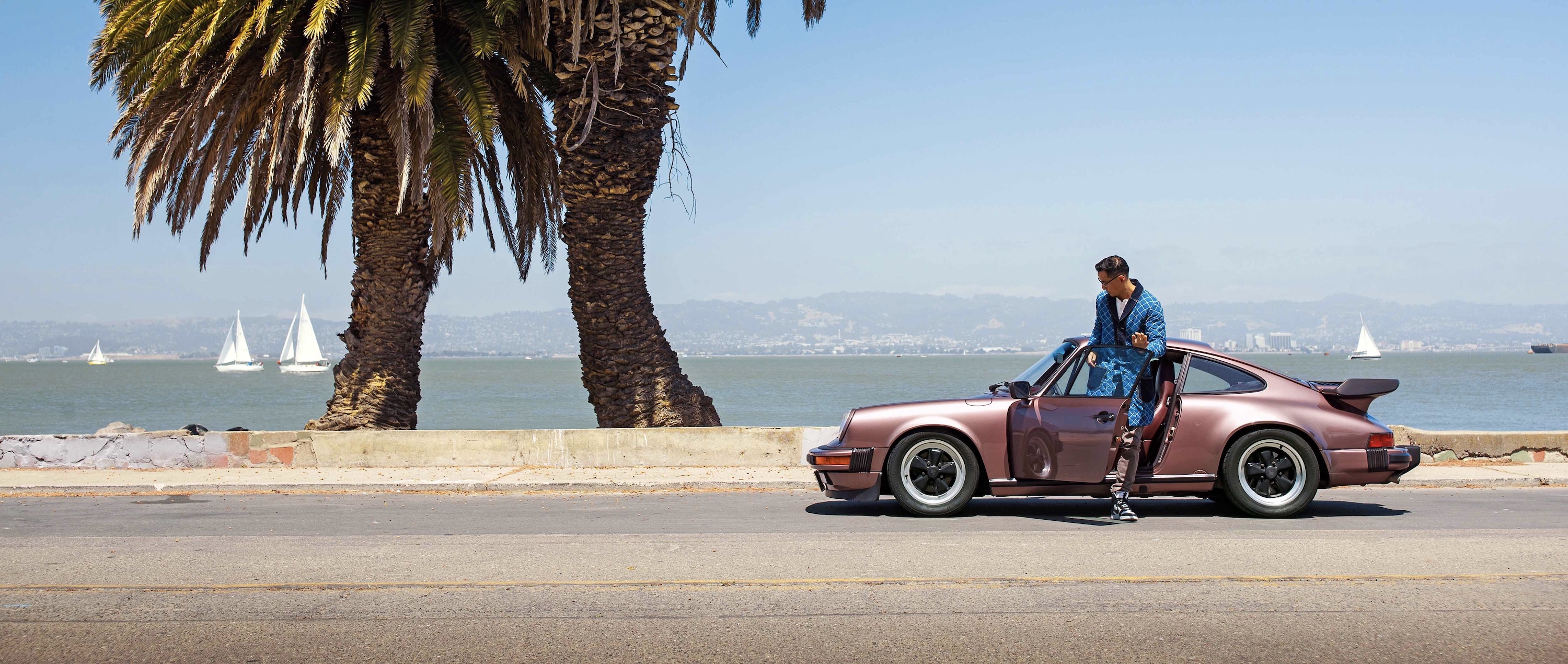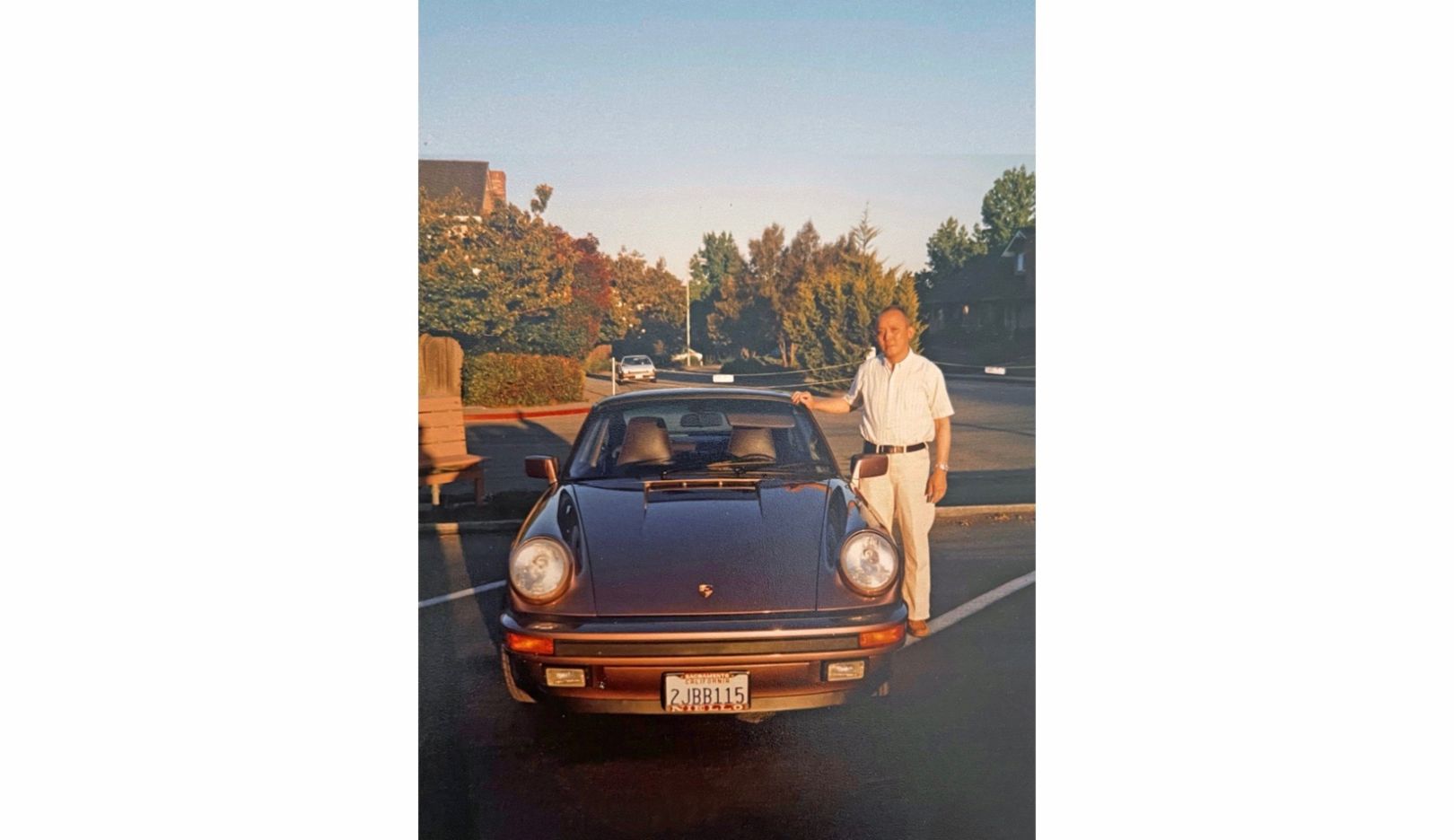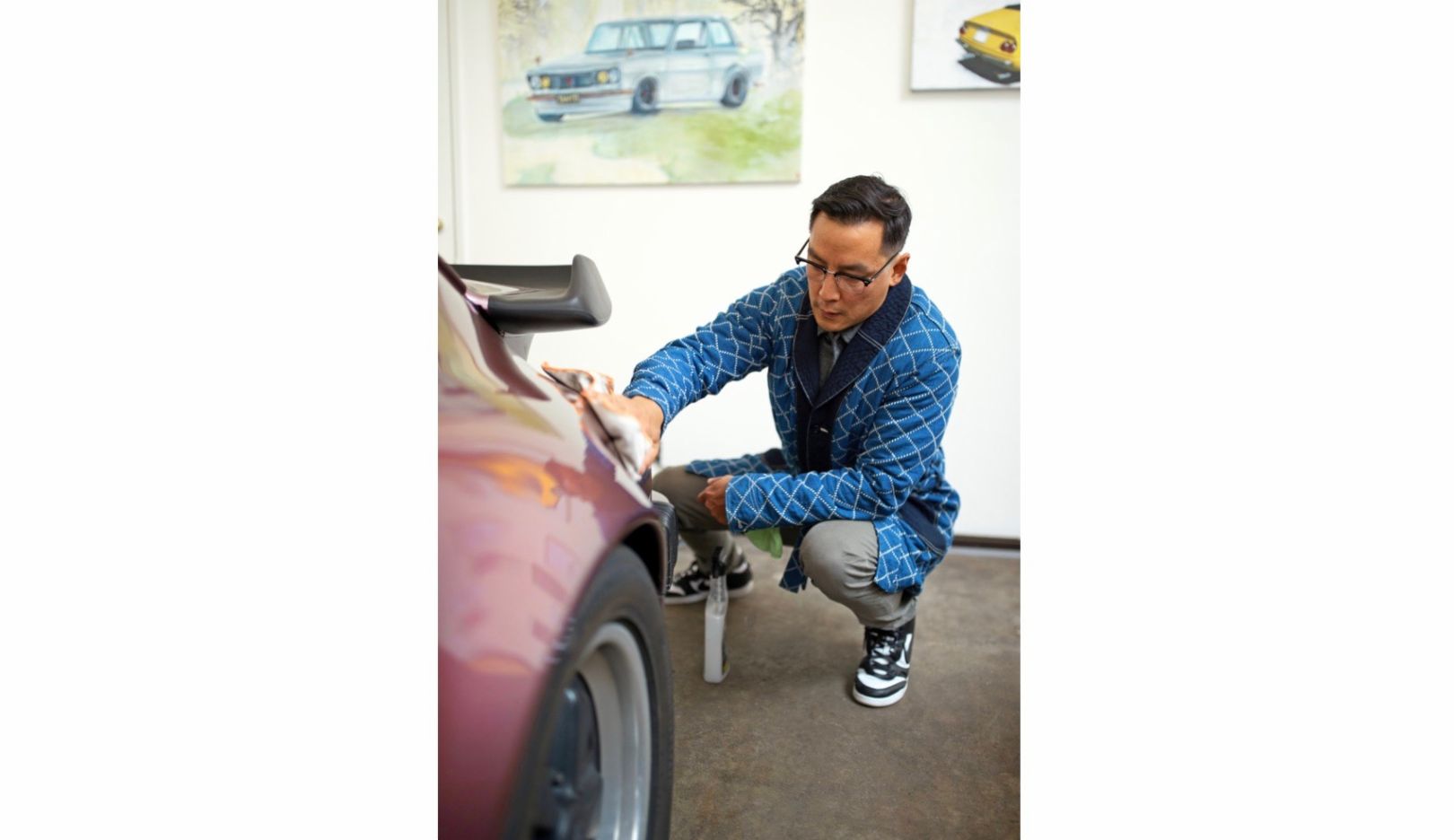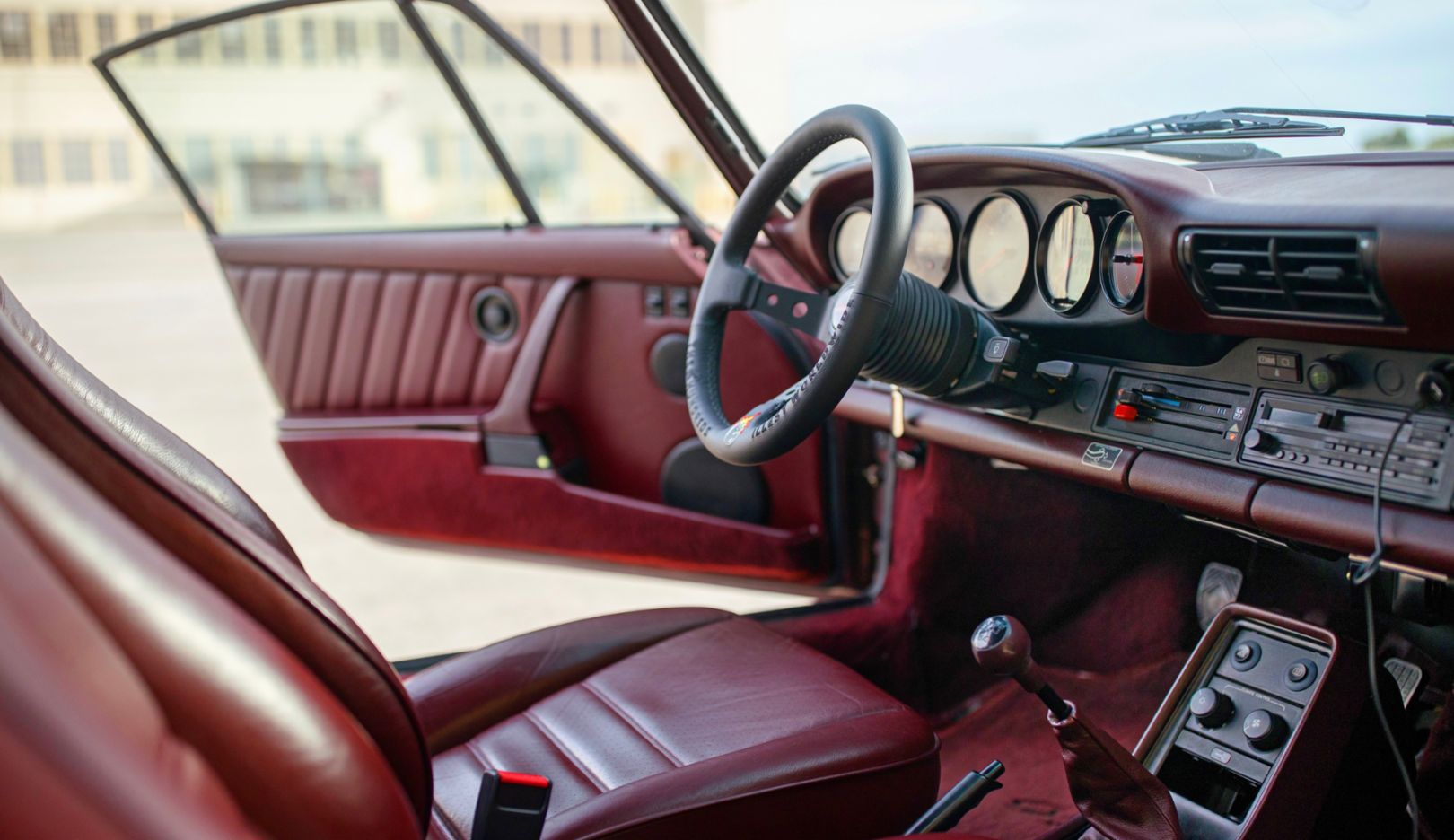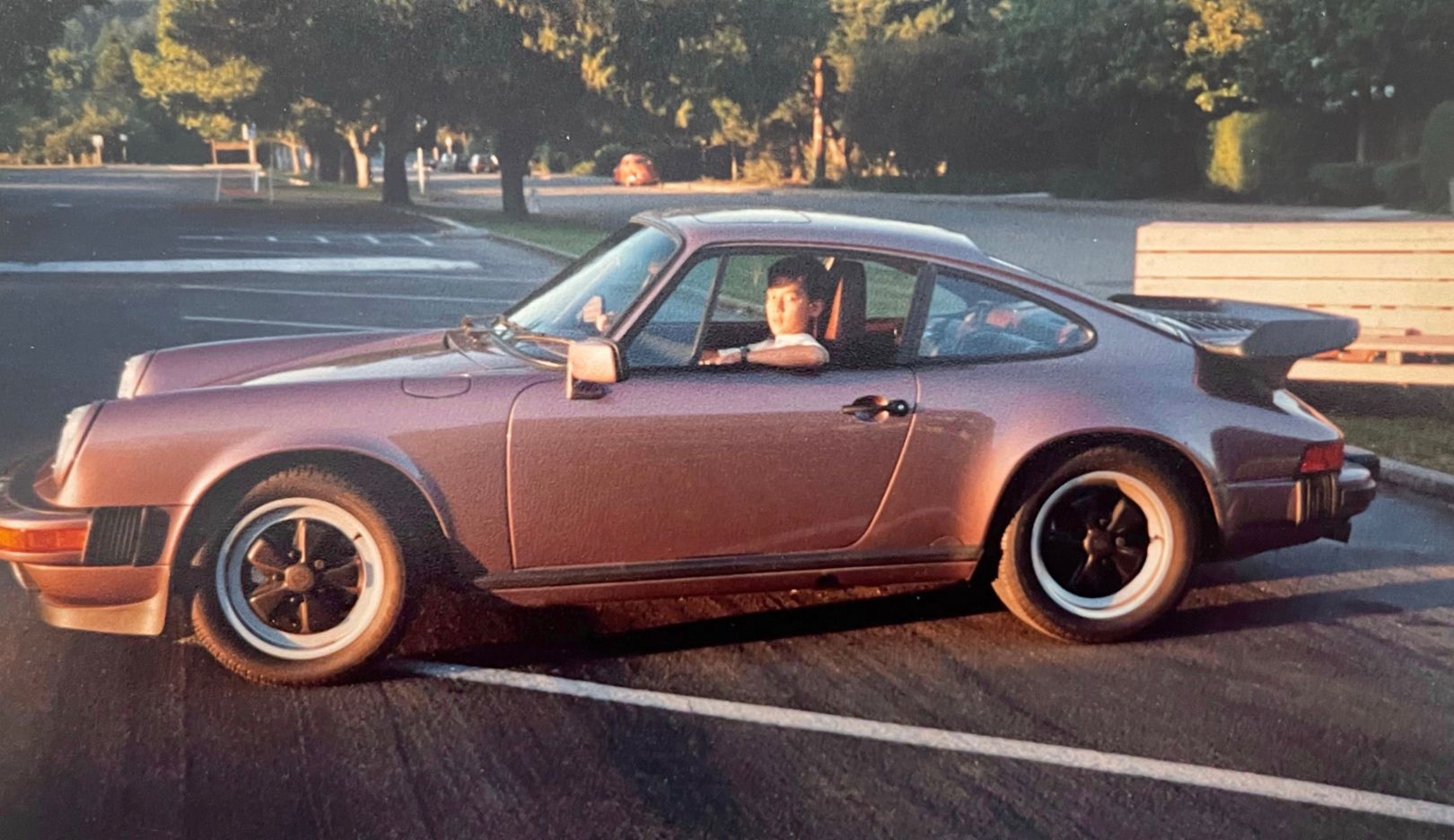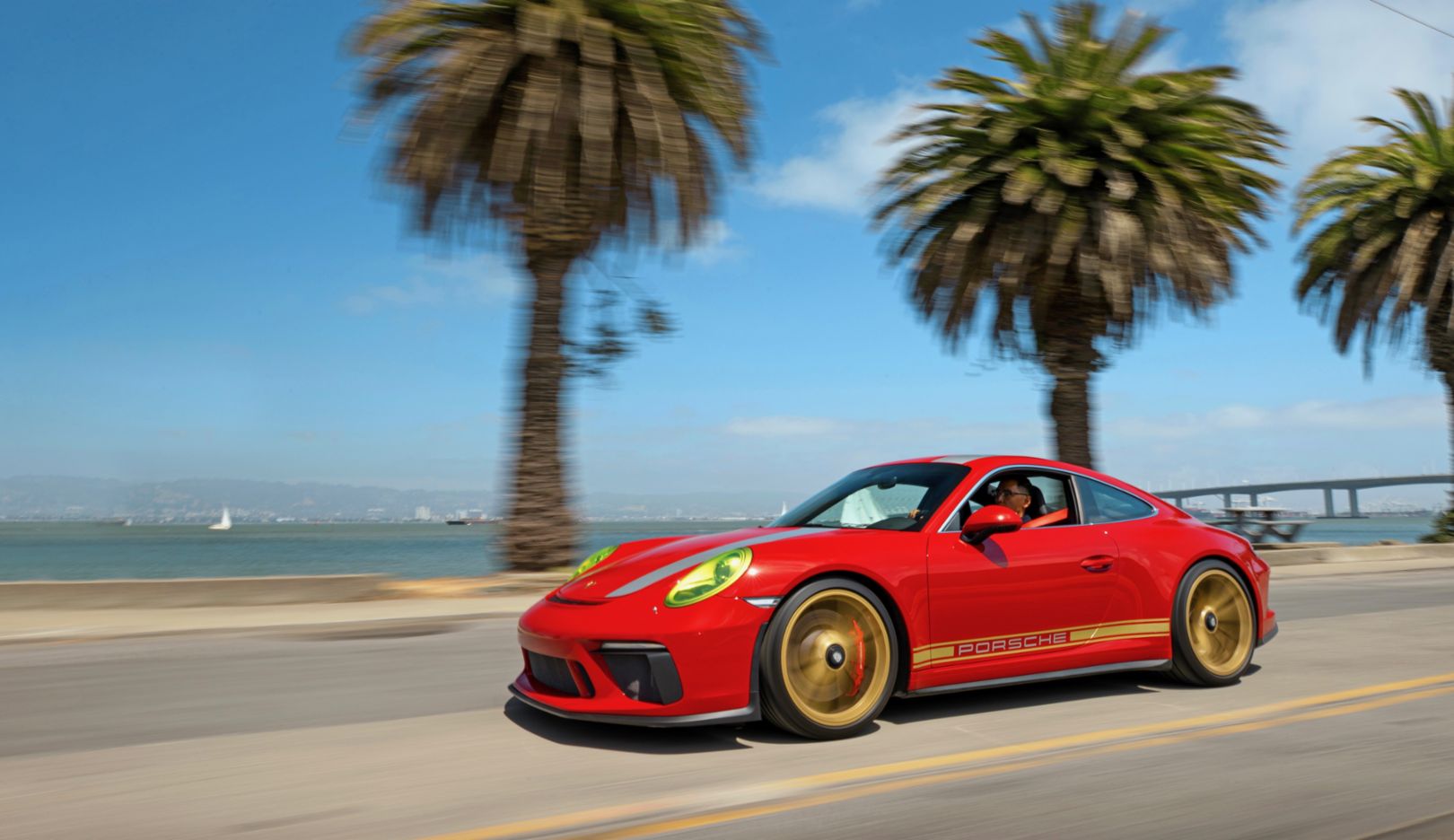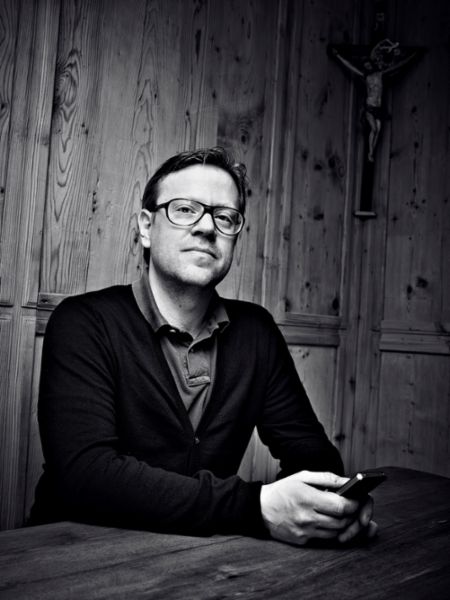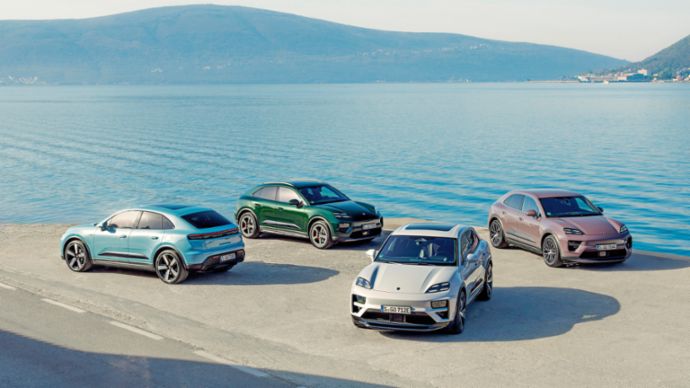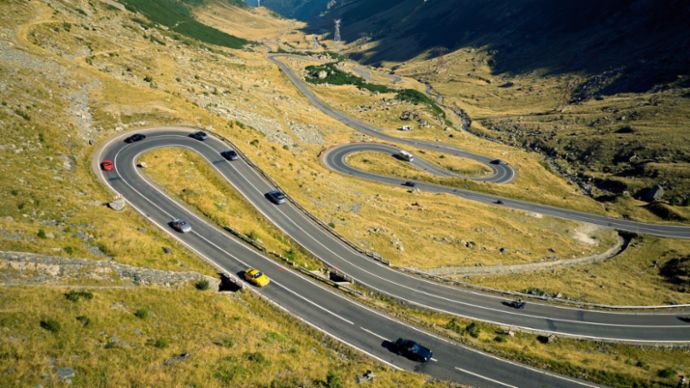The Yin and Yang of Daniel Wu
In his hometown of San Francisco, the movie star and martial artist talks about his Asian roots and the search for the right balance – both in life and on the racecourse.
Arrival at the Great Star Theater in San Francisco’s Chinatown. Daniel Wu parks the Porsche 911 Carrera – a G series built in 1988 – in front of the theater he once went to with his grandfather. The building’s Chinese temple–inspired roof blends harmoniously with the surrounding architecture. At the age of seven, Wu saw his first-ever martial arts movie here in 1982. The classic film Shaolin Temple featuring action star Jet Li opened up a whole new world for Wu. “The actor’s first motion picture was absolutely unbelievable. The action scenes are still legendary to this day.” Growing up as a Chinese American, the Hollywood star remembers not having any role models that looked like him on the silver screen. “Seeing someone that looked like me on-screen was a real turning point for me.” He and his grandfather left the theater feeling exhilarated, but Daniel would have to wait another five years to finally be able to learn kung fu himself. “My Mom was worried I’d get into fights at school. So she wouldn’t let me start until I was twelve years old and had found the right master.”
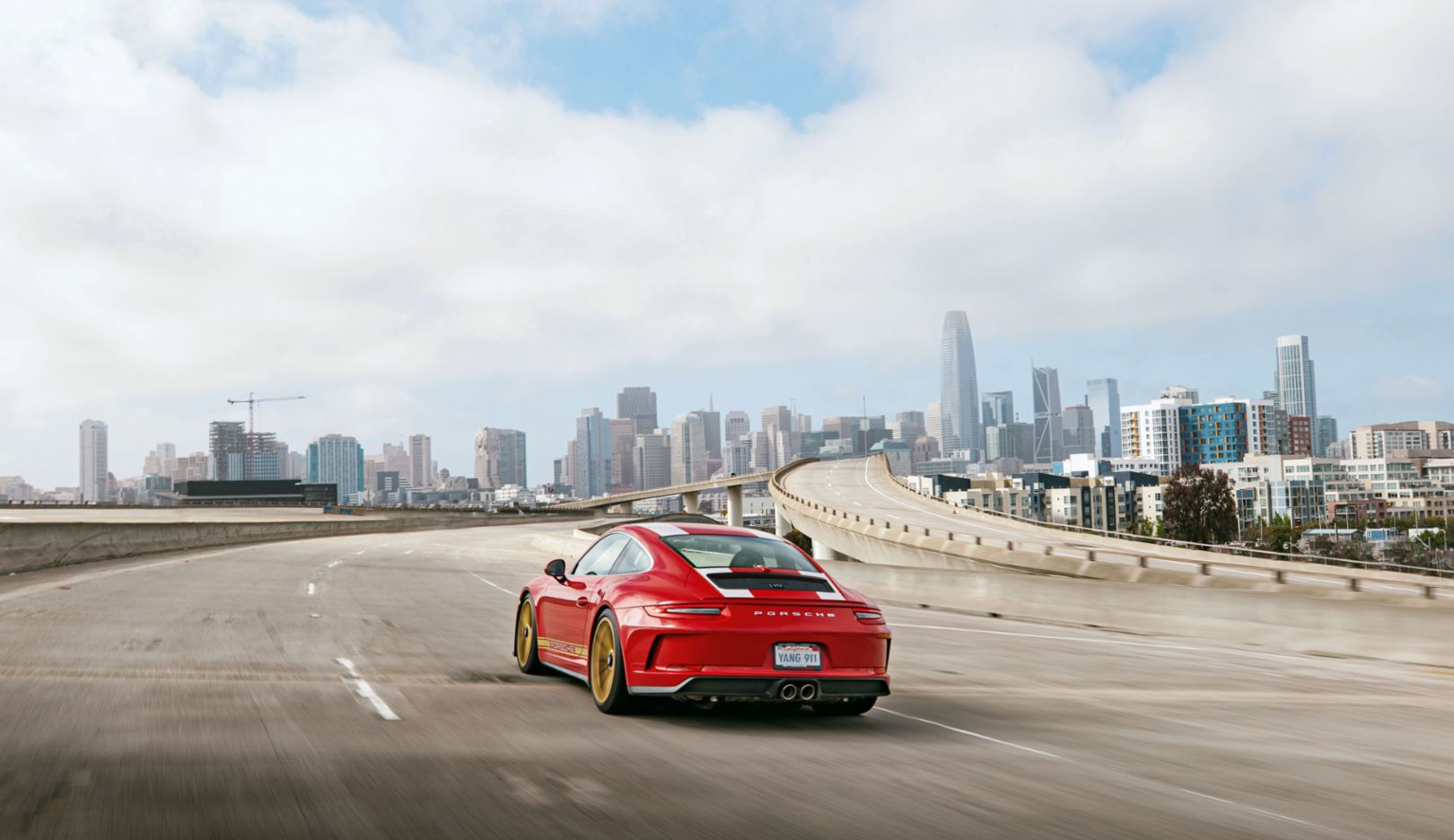
Wu did eventually find him – and is still inspired by him to this day: “Master Chiang was a fascinating man who not only had mastered kung fu, tai chi, and qigong, but was also accomplished in Chinese brush painting and traditional Chinese medicine and was even a lawyer. In addition to martial arts, he also taught me how to rediscover my Asian roots as an American by understanding ancient concepts like yin and yang,” says Wu, who’s well acquainted with the Asian philosophy of dualism. “Yin and yang represent the elemental forces of all being and are actually older than Chinese characters. If you accept the two contrary characters – the feminine yin and masculine yang – they form a balance of harmony. That’s an area of focus in my life,” says Wu. He learned this lesson early on as he studied different martial arts. He later taught kung fu himself as head trainer at the University of Oregon. “The art of tai chi is all about achieving a kind of balance. According to a proverb, too much of a good thing can be bad. So I try to maintain a good balance in everything I do,” explains the 47-year-old.
The Great Star Theater he’s standing in front of now not only represents an important memory for the actor, but also recently hosted a podium talk about Daniel Wu’s roots in the Bay Area, how he ended up in the Hong Kong film industry, and about his new movie Reminiscence. Wu plays the role of villain Saint Joe next to Hugh Jackman in the blockbuster. There are, of course, some fight scenes, but Wu refuses to be reduced to martial arts. “I went to Hong Kong in 1997 and got involved in the film industry there. Out of the nearly 70 films I did there over a period of twenty years, only three involved martial arts. And in the US, I did the TV show Into the Badlands.” The martial arts series employs artistic exaggeration. “It’s hard to leave this stereotype behind. Kung fu has given me a lot, but I think that reducing my entire acting career to just that is too one-dimensional.”
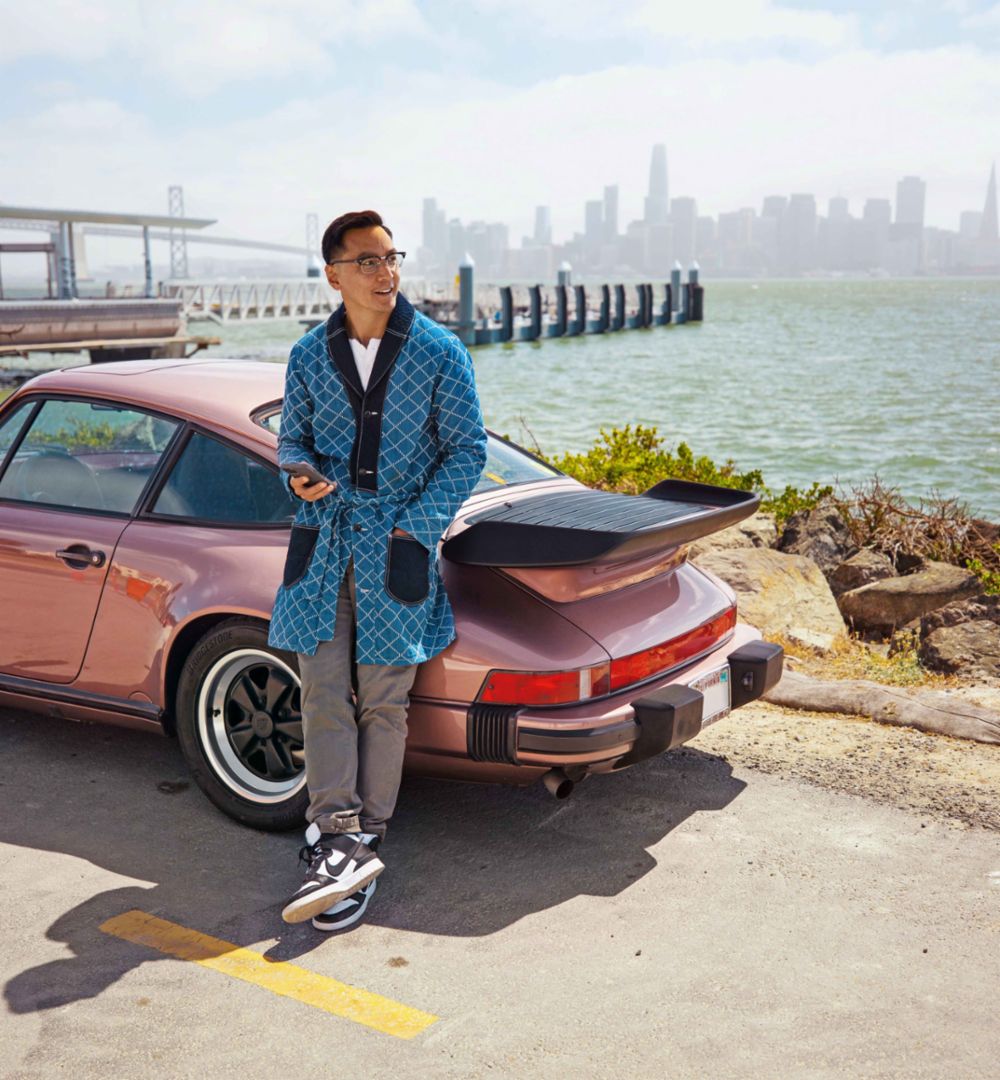
Memories:
When the movie star takes the 33-year-old car out for a spin, he can’t help but think of his father.In addition to acting and martial arts, motorsport is another component of Daniel Wu’s three-dimensionality. He has a racing license issued by the IMSA and Sports Car Club of America (SCCA), which has allowed him to compete in various races. It’s a passion that Wu shares with movie legend Jackie Chan, whom he calls a friend and mentor. “We just happened to meet at a party in Hong Kong and immediately exchanged phone numbers. A week later he became my manager, which lasted for eleven years.” The two have since filmed several movies together and have gotten very close over the years. “He has always treated me like a son,” says Wu fondly. Due to his unbelievable work ethic and passion, Jackie Chan has also had a huge impact on Wu’s outlook on life. “Jackie’s love, care, and generosity for the people around him are truly extraordinary. I try to live my life just like him,” says Wu. “And he’s just as crazy about cars as I am!”
Wu’s favorite racecourse is the Laguna Seca raceway near San Francisco Bay, just two hours from Oakland, where he lives with his wife and daughter. He has suitable sports equipment in his garage at home, including two Porsche 911 models. He drove his Cassis Red Carrera G series into Chinatown today, with the 2018 Carmine Red 911 GT3 (991) Touring waiting patiently at home. “The two of them are my yin and yang, old and new, on four wheels – for the road and the racecourse.”
His father acquired the Carrera when he retired. “Dad had never owned a sports car and wasn’t all that interested in cars,” says Wu. “I can remember the evening he showed up in my room all excited and told me that he was going to buy a Porsche and that I could choose the color.” Even though it was more than 30 years ago, he can vividly remember seeing it for the first time. “I was at school and couldn’t sit still because I knew that my dad would be picking me up in the Porsche for the first time. I told all of my classmates. When they saw the car, they all made fun of me, saying ‘Your dad bought a pink Porsche!’” Wu remembers being really upset. But he was still proud of the fact that he had chosen such a rare color. “And Cassis Red is now more in style than ever before.”
“The car immediately brings back good memories for my father.”
Daniel Wu
Whenever Daniel Wu drives the car, he always thinks about his father, who has Alzheimer’s. “A terrible disease. I visit him as often as possible. Unfortunately, his dementia is pretty far advanced, but he always remembers his 3.2-liter Carrera. The car immediately brings back good memories for him whenever he sees it.” His son took over the car ten years ago. “My dad was almost 80 years old. It was noticeably harder for him to work the steering wheel and sporty clutch. The Coupé had more than 100,000 kilometers on it – and still had that new-car smell.”
Wu uses the GT3 Touring, his yang, on more spacious highways and for track days on racecourses. “Without yin, it wouldn’t be as important for me as it is.” The GT3 is a real eye-catcher on the streets of San Francisco. Unfortunately, exclusive sports cars tend to stay hidden in garages here, says Wu. “When people wave at me enthusiastically, it’s not because they recognize me. It’s because of the Porsche!”
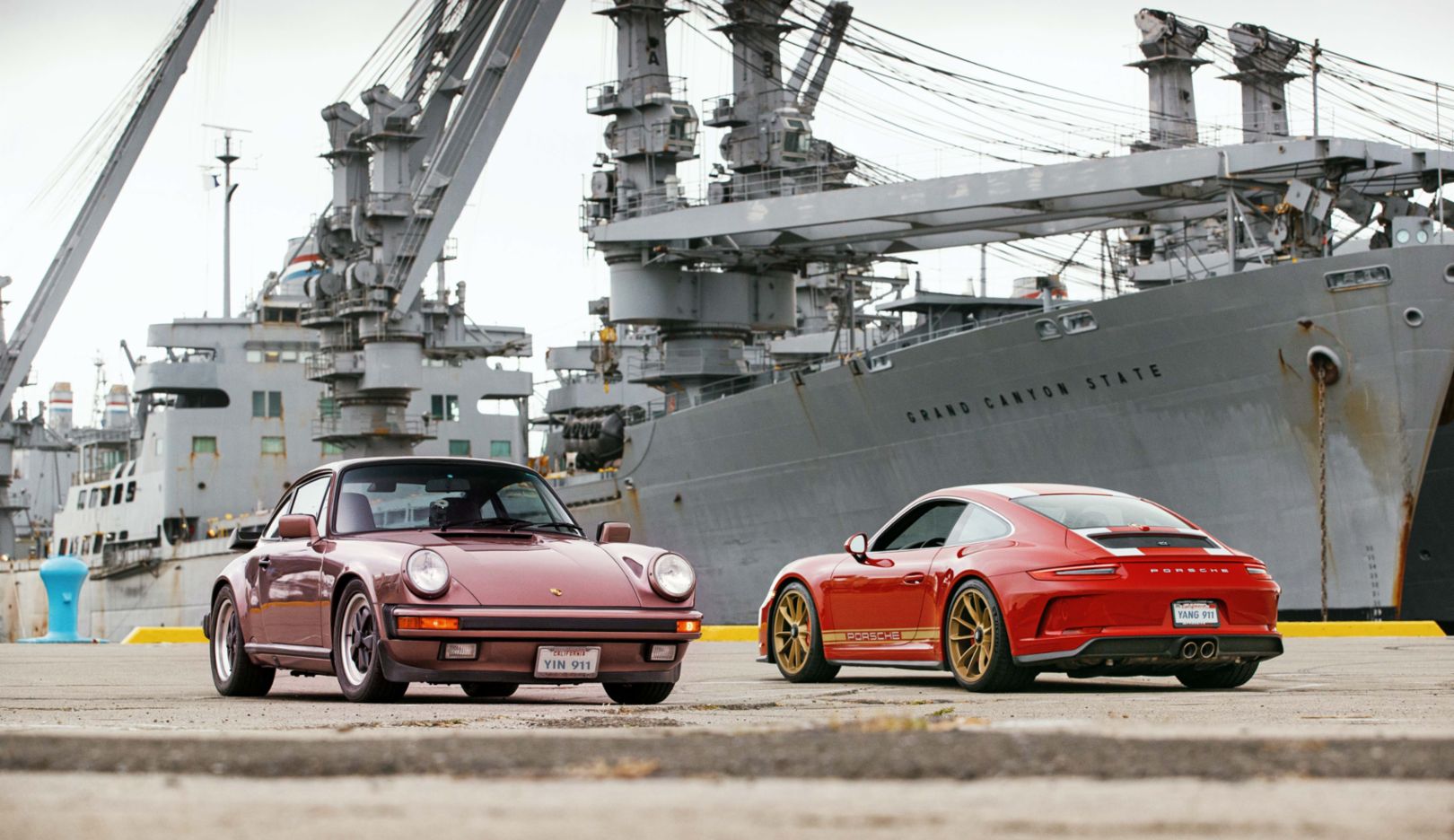
Shipshape:
For Wu, old and new create a harmonious balance, just like the balance between traditional wisdom and a modern lifestyle.According to Wu, people in Los Angeles tend to flaunt what they have. He and fellow actor Sung Kang, who’s known for his role in the Fast and Furious series and is his partner in Student Driver, an automotive lifestyle and fashion brand, recently organized a special car event there in response to the increasing hostility against Asians in the US. “We weren’t expecting all that many people, but more than a thousand showed up,” explains Wu enthusiastically. “When we combine a good cause with our passion for cars, that’s a good thing.” The proceeds went to victims of violence.
Duality for balance.
You have to wonder how Daniel Wu finds the time for all of his commitments. The answer requires an understanding of spiritual energy: “Everything that makes me who I am originates in martial arts. My drive and my ambition to overcome challenges of all kinds are rooted in the lessons I learned from Master Chiang. I use these abilities professionally, socially, and on every meter of the racecourse.“
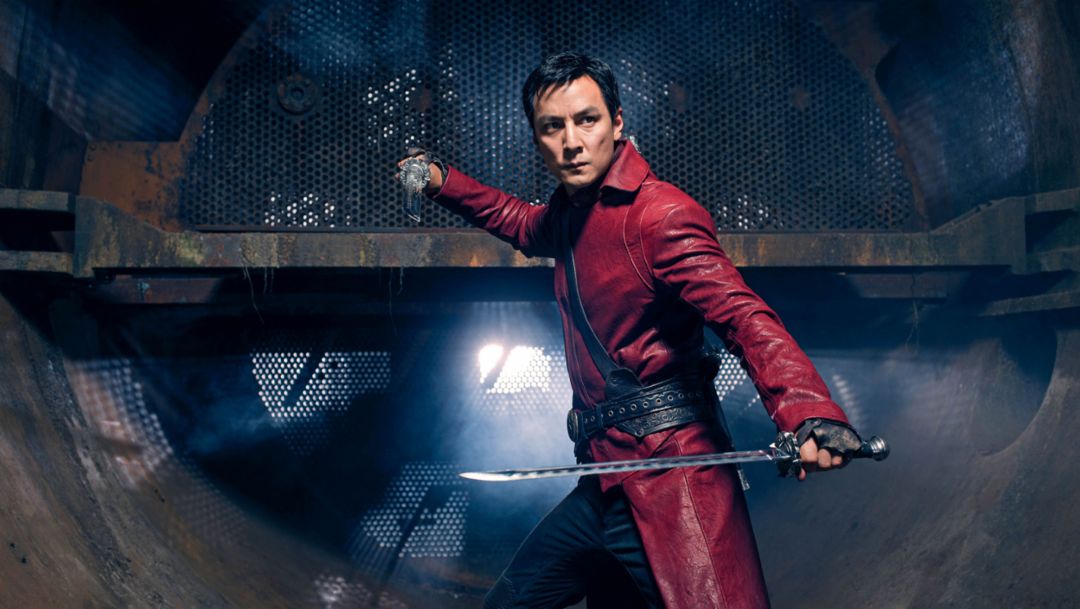
Martial Arts on the Silver Screen
Wu became world-famous as Sunny in Into the Badlands. The martial arts of the Far East conquered Western movie theaters in the 1970s. Bruce Lee movies were popular the world over, and Jackie Chan has kept the genre alive with fearless stunts and slapstick.
Consumption data
Macan
Macan Turbo
-
20.7 – 18.4 kWh/100 km
-
0 g/km
-
A Class
